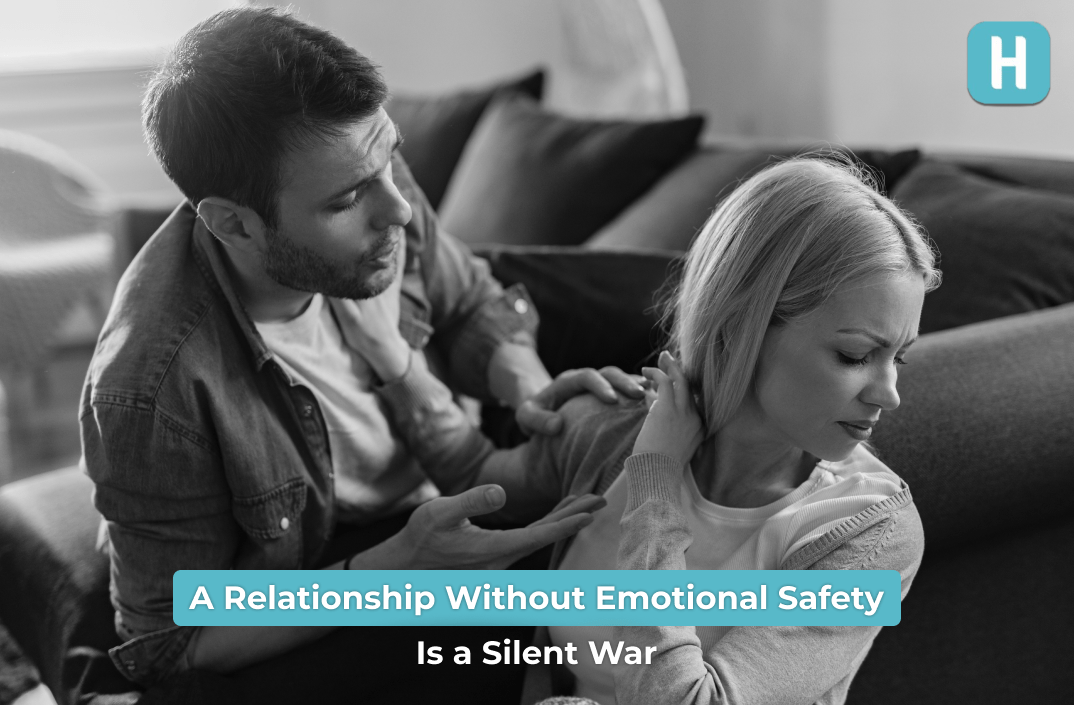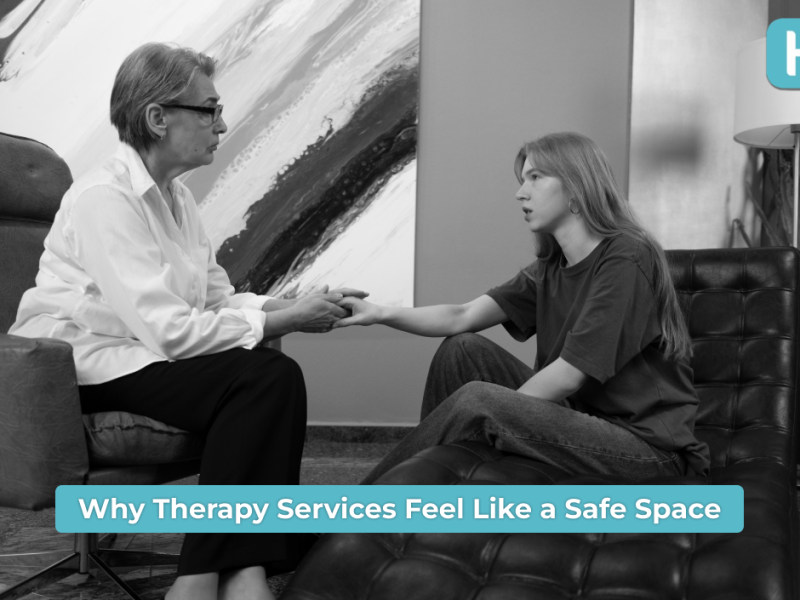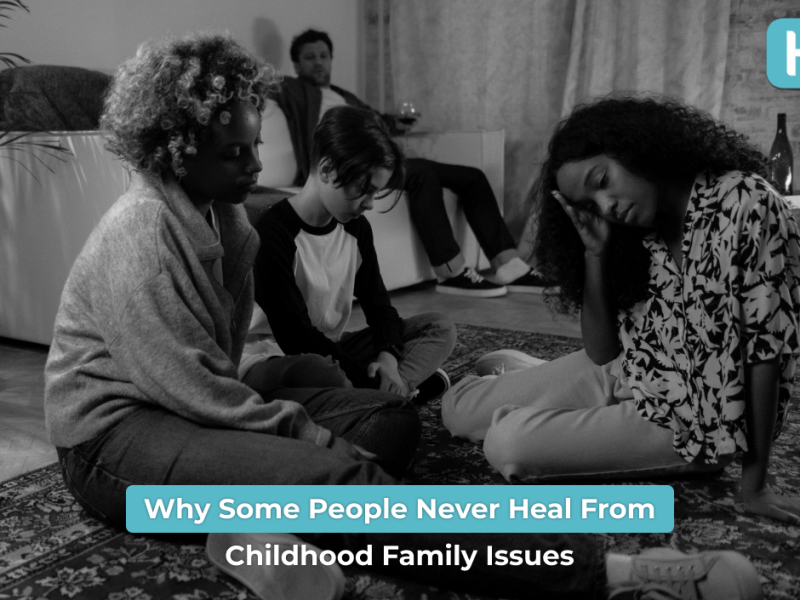You can sit next to someone every day, sleep in the same bed, laugh at the same jokes, and still feel completely alone.
That’s what happens when a relationship lacks emotional safety. Everything might look fine from the outside, but inside, it feels like you’re walking through a minefield. One wrong word, one misunderstood tone, one unshared feeling, and the silence turns heavy. You stop talking honestly. You stop showing up fully. You start protecting yourself from the person you love.
This isn’t love. This is survival.
And a relationship like that? It’s not peaceful. It’s a quiet war.
What Is Emotional Safety, Really?
Emotional safety means feeling safe to be your real self with your partner. It means you can express what you’re thinking or feeling without fear of judgment, shame, or punishment. It’s knowing that even during hard conversations, your heart is safe in their hands.
When you feel emotionally safe, you don’t second-guess every word. You don’t hide your truth to “keep the peace.” You know that your emotions matter. You know you can disagree without destroying each other.
Emotional safety in relationships is not about never arguing. It’s about knowing that even in conflict, you won’t be emotionally attacked or abandoned.
What Happens When Emotional Safety Is Missing?
It doesn’t always start with yelling. In fact, the most painful lack of emotional safety often hides behind silence.
- You stop opening up.
- You hesitate before sharing what upset you.
- You tell yourself it’s not worth the fight.
- You feel anxious around your own partner.
These are not dramatic blow-ups. These are signs of emotional unsafety. And over time, they cause deep emotional damage.
Without emotional safety, love starts to feel dangerous. Vulnerability becomes a risk instead of a bridge. Intimacy fades. Conversations turn into strategies for survival. You start keeping score. You walk on eggshells. You bottle up every emotion that might cause “too much drama.”
That’s not love. That’s emotional warfare.
You Might Be in a Relationship, But You’re Not at Home
We often talk about home as a place. But emotionally, home is supposed to be a person.
When there’s emotional safety, your partner feels like home. You can exhale around them. You can be your messy, complicated, vulnerable self. You can feel things deeply and share them freely.
But when that safety disappears, you stay alert. You smile when you’re hurting. You laugh at things that feel wrong. You feel lonelier with them than when you’re by yourself.
This quiet, invisible war steals your peace, slowly. And what makes it harder is that others may not see it. From the outside, everything might seem okay.
But inside, you know. Your gut knows.
This isn’t love. This is exhaustion.
The Little Things Are Not So Little
A partner rolling their eyes at your dreams.
Brushing off your sadness as “overthinking.”
Withholding affection after a disagreement.
Mocking your vulnerability.
These might seem small on the surface. But they are powerful, toxic relationship warning signs. They tell you: You are not safe here.
Over time, your nervous system starts reacting. Your heart races before difficult conversations. You rehearse what you want to say five times in your head. You start losing yourself just to keep the relationship going.
That’s the cost of living without emotional safety.
It doesn’t always hurt loudly. But it always hurts deeply.
Why We Stay in Relationships That Don’t Feel Safe?
Because we want love to work.
Because we believe things will change.
Because we’ve convinced ourselves it’s not “that bad.”
Because walking away feels like failure.
Because trauma makes us confuse intensity with intimacy.
Sometimes, we stay because we think our needs are too much. We’ve learned to shrink ourselves to avoid rocking the boat. But the truth is, your need for emotional safety is not a weakness. It’s not “too much.” It’s a human need.
You deserve to feel emotionally safe in love. That’s not asking for too much. That’s asking for the bare minimum.
What Emotional Safety Feels Like
- You can be honest without fear.
- Your feelings are met with compassion, not control.
- Disagreements don’t turn into punishments.
- You feel respected, even when you’re struggling.
- You’re not afraid of their reactions.
- You’re allowed to change, grow, and feel.
This is what emotional safety in relationships looks like. It creates space for trust, depth, and healing. It makes room for real love, not the love that demands perfection, but the love that holds you even when you’re a mess.
How to Build Emotional Security With Your Partner?
It’s not always easy. But it’s possible, if both people are willing to do the work.
Here’s how to build emotional security:
Listen to understand, not to defend
- When your partner shares something vulnerable, don’t rush to correct or fix. Just be present. Let them feel heard.
Validate feelings, even if you don’t agree
- You don’t have to see things the same way. But you can say, “I get why you feel that way.”
Apologize without conditions
- No “I’m sorry, but”
- Just own your part.
Avoid sarcasm, mockery, or shutdowns
- These destroy emotional trust faster than you think.
Ask what makes them feel safe, and do more of that
- Emotional safety is built through consistent, intentional care.
Relationships built on this kind of safety don’t just survive. They thrive.
But What If You’re the Only One Trying?
Sometimes, you try to build that safety, and your partner keeps tearing it down. They refuse to talk. They gaslight your pain. They blame you for being “too sensitive.”
In these moments, it’s okay to ask yourself:
How much longer can I fight alone in this silent war?
If your partner won’t meet you halfway, it might be time to ask a harder question:
Is this relationship helping me heal, or is it hurting me more?
When to Walk Away
Leaving is not easy. But staying in a relationship that constantly drains your peace costs more than just time. It costs your sense of self.
Here are some signs it may be time to consider how to leave a silent war relationship:
- You feel more anxious than safe.
- You hide your emotions to avoid their reaction.
- You feel manipulated, blamed, or controlled.
- Your attempts to talk always end in silence or blame.
- You’ve tried everything, but nothing changes.
You’re not weak for walking away. Sometimes the bravest thing you can do is stop fighting for a love that won’t fight for you.
Healing After the War
If you’ve left a relationship that lacked emotional safety, you may carry more than heartbreak. You may carry fear. Self-doubt. Guilt. Confusion.
That’s why therapy for relationship trauma can be life-changing. A good therapist doesn’t just help you process the past; they help you rebuild trust in yourself. You learn how to listen to your gut again. How to set boundaries. How to believe that love doesn’t have to hurt.
You learn that safety is not a luxury. It’s a requirement.
You Deserve Safe Love
You deserve a relationship where your voice matters. Where your tears aren’t an inconvenience. Where your past is honored, not used against you. Where emotional safety is the foundation, not a negotiation.
Whether you’re rebuilding with your partner or finding the strength to walk away, you are not alone. There is help. There is healing. And there is love that doesn’t make you shrink.
Because real love doesn’t feel like war.
It feels like peace.

Why Emotional Safety Feels So Rare, But Isn’t Impossible
Let’s be honest, many of us grew up in homes where emotional safety didn’t exist. Maybe you were told to stop crying. Maybe no one asked how you were really feeling. Maybe love came with conditions, only if you behaved, achieved, or stayed silent.
So when you enter adult relationships, you carry all that forward. You might not know how to ask for what you need. You might confuse tension with passion. Or believe that love always has to hurt a little.
But it doesn’t.
Emotional safety isn’t rare. It’s just something most of us never learned how to recognize or build. And the good news? It can be learned. With the right tools, the right people, and the right healing space, you can experience the kind of relationship that feels like peace, not pressure.
You deserve more than survival in love. You deserve connection, softness, and safety.
Why People Downplay the Need for Emotional Safety
So many people say things like:
- “All couples fight.”
- “It’s not abuse if there are no bruises.”
- “I’m just too sensitive.”
- “I don’t want to cause drama.”
Minimizing your needs doesn’t make the pain go away. It just forces you
to live with it longer.
Emotional safety in relationships is not a luxury or bonus feature. It’s the very foundation of intimacy. It allows you to let your guard down, to be seen without performing, and to love without fear.
When people say “we just don’t communicate well,” what they often mean is: we don’t feel safe with each other emotionally. You can’t communicate openly with someone who uses your honesty against you.
Small Moments Build or Break Emotional Safety
It’s not always the big fights that erode trust. Often, it’s the little patterns that go unchecked for too long.
- A partner who dismisses your feelings with a joke.
- One who never apologizes, but expects you to move on.
- Someone who calls you “too emotional” when you try to express your hurt.
These are not harmless habits. They are constant reminders that your emotional experience is not safe here. And over time, they lead to deep disconnection and emotional shutdown.
On the flip side, small gestures can slowly restore safety, too:
- Saying “I understand” even if you don’t fully agree.
- Giving space when needed, without withdrawing love.
- Showing up consistently, not just when it’s convenient.
If both partners commit to these small steps, how to build emotional security becomes less about theory and more about everyday choices.
Role of Self-Worth in Emotional Safety
When your self-worth is low, you’re more likely to stay in unsafe relationships. You might believe that emotional neglect is normal, or that you’re lucky just to have someone, even if that someone makes you feel unseen or unloved.
But emotiona safety begins with how you treat yourself. If you believe your feelings are valid, your voice matters, and your heart deserves care, you’ll stop settling for partners who don’t offer the same.
So healing is not just about changing your partner. It’s about remembering who you were before you accepted less.
You are allowed to ask for more.
You are allowed to outgrow relationships that cannot meet you emotionally.
You Are Not Too Much, You’re Just Asking for Safety
If you’ve ever been told you’re too sensitive, too emotional, too needy , let this be your reminder: you are not too much. You were just asking for emotional safety, and you were asking the wrong person.
Wanting emotional presence, softness, understanding, and consistency is not a flaw. It’s a sign of emotional intelligence. The desire to be emotionally safe in love is one of the most human desires we have.
And you are not alone in wanting it.
How Helply Can Help You Find Safety, Not Silence?
At Helply, we know what it feels like to carry unspoken pain. To be in a relationship that looks fine on the outside, but feels like a warzone inside. To wonder if you’re just “too sensitive,” or if love really has to hurt this much.
That’s why we created a space where healing feels possible, where you don’t have to explain away your feelings or shrink yourself to feel accepted.
Our licensed therapists are here to walk with you, whether you’re trying to rebuild a broken relationship, heal after emotional trauma, or finally learn what safe love actually feels like. We offer culturally aware, faith-sensitive, and judgment-free support tailored to your story.
If you’re trying to process toxic relationship warning signs, learn how to leave a silent war relationship, or simply find clarity on your emotional needs, our counselors are here to help, gently, consistently, and with care.
Because love should never feel like a battlefield, and healing should never feel out of reach.
With Helply, you’re not just surviving anymore.
You’re learning to feel safe again, in your mind, in your heart, and in every relationship that follows.
FAQs
- What are clear signs of emotional unsafety in a relationship?
If you feel constantly anxious around your partner, walk on eggshells, or avoid expressing your feelings, these are strong signs of emotional unsafety.
- How can I rebuild emotional safety in my relationship?
Start with honest conversations, active listening, and small acts of emotional consistency. Explore how to build emotional security together through mutual effort and sometimes with a therapist.
- Can therapy really help after emotional abuse or trauma?
Yes. Therapy for relationship trauma offers a safe space to unpack your pain, heal your patterns, and learn to trust again.
- How do I know when it’s time to leave?
When your mental health is suffering, and your attempts at connection are constantly rejected, it might be time to consider how to leave a silent war relationship for your well-being.
- Is emotional safety really that important?
Yes. Emotional safety is not optional; it is the foundation of every healthy relationship. Without it, love becomes fear.



